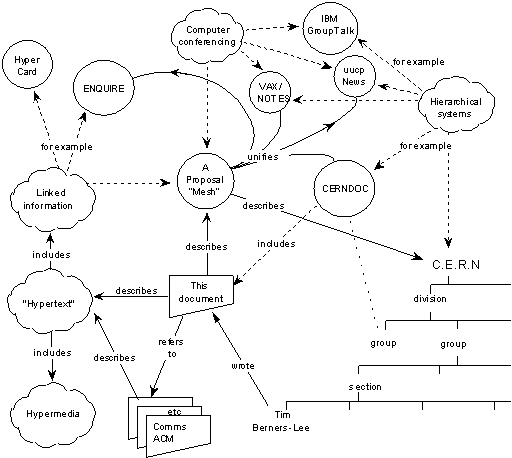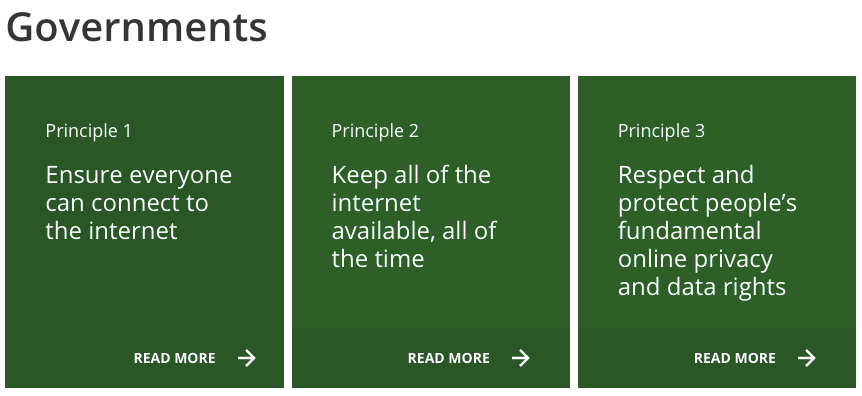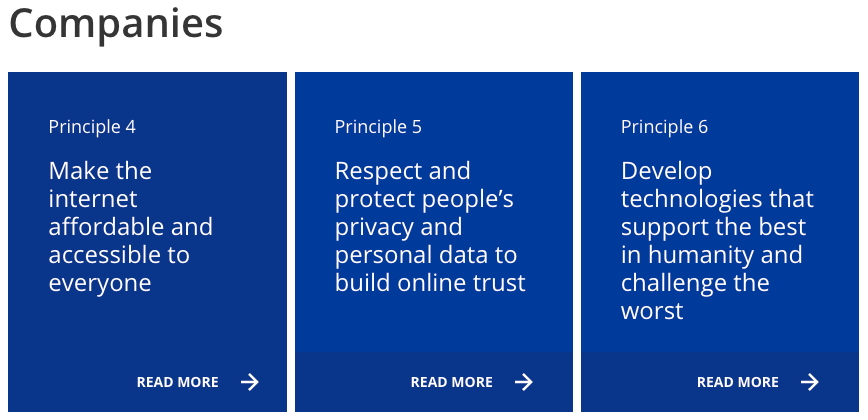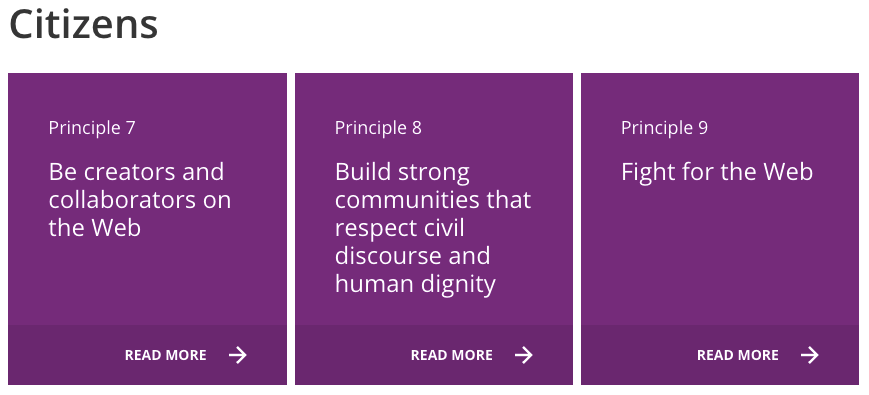30 years ago, a man named Tim Berners-Lee conceived an idea that changed the face of the world forever. While working at a Swiss research lab called CERN, the young Berners-Lee was trying to figure out a good way to allow all the research computers to access the same information quickly, easily and efficiently.
The result, which he dubbed the “World Wide Web”, was approved by his boss. And in 1990 Berners-Lee wrote the first web browser and web client. He established the standards by which computers would access this information. With that the information age was up and running.
But the heady optimism of those early days has become a little tarnished. The Web changed the world tremendously for sure, but at times the information superhighway feels a little more like a back alley. Fake news, bad actors and malicious pages have multiplied as companies like Google, Amazon and Facebook have grown to prominence.
The Web is an integral part of our lives right now. But is that a good thing? Berners-Lee isn’t so sure. That’s why he spearheaded the Contract for the Web.
An Information Constitution
At its core, the Contract for the Web is a deceptively simple thing: a document that affirms certain rights and privileges for everyone who uses the internet. But it’s deeper than it looks.
Berners-Lee went from an obscure research fellow to a knight because of the invention of the web. That’s allowed Sir Tim Berners-Lee to open doors that might otherwise have stayed closed, and he’s been active in using that to shape policy.
The W3 Consortium is his brainchild, and many other policy initiatives for the Web have been led by his pen. But the Contract for the Web came through the internet Governance Forum, a UN-created group that brings together many of the top stakeholders in the internet to agree on standards for the future.
Berners-Lee presented the plan to the IGF in November, and many leading companies including Google, Twitter, Facebook and others have already signed up.
“I think people’s fear of bad things happening on the internet is becoming, justifiably, greater and greater,” said the inventor of the Web to the Guardian. “If we leave the web as it is, there’s a very large number of things that will go wrong. We could end up with a digital dystopia if we don’t turn things around. It’s not that we need a 10-year plan for the web, we need to turn the web around now.”
For more than a year over 80 different organizations have been toiling away on the contract, and over 150 signed on at the very start. We’ve covered the process previously before it actually came to fruition. Several governments including Germany and France have also signed on to these principles. The Contract for the Web is made up of nine major principles, with three each for governments, companies and citizens.
Principles of Government
Governments promise three things: to ensure people can connect to the internet, keep all of it available all the time, and protect privacy and data rights.
These principles haven’t been a priority for governments before this point, and may not be for many countries in the future. Witness China’s Great Firewall, for example, or Iran’s recent shutdown of the internet when their citizens protested fuel prices.
Though not every country may sign up, these principles can be a guideline like the Geneva Conventions or Paris Climate Accords, two other major documents that were signed by a good number of countries and became standards.
With the way that the Web has taken over every aspect of our lives, connectivity to the internet is closer to a basic human right than a privilege at this point. Quality of life for someone who can reach the Web is likely to be significantly better than that of someone who can’t.
There’s also the principle of openness that allows citizens to communicate with each other, share news and pass on information about human rights violations. The internet has historically been a powerful tool in protests around the world, including a significant role in the Arab Spring.
It’s not just totalitarian governments who need to consider their actions in light of the Contract for the Web, though. Data rights and privacy have been squarely in the crosshairs of recent initiatives across the world, particularly in the United States and Europe, as companies have grown to a size where they dominate the Web.
Consumers have slowly come to an understanding of just how much of their privacy they’ve signed away and they’re not happy about it. With the Contract for the Web, the IGF is hoping to nip this in the bud with both legislation and corporate responsibility.
Principles of Companies
Companies are given responsibilities under this contract as well. They promise to provide affordable access, protect privacy and personal data and develop technology to make people better.
These principles sound pretty general. That’s because they are. As Berners-Lee discovered with his initial Web proposal back in 1989, a general standard is more likely to be followed. Developing technology to make people better was something many of the initial innovators behind computing and the internet thought was important. But over time those principles can be eroded as it becomes apparent how much money can be made.
There are also specific clauses that address some of the more tangible problems, though. “Crucially, the contract also contains concrete actions to tackle the negative — even if unintended — consequences of platform design.
For example, why on an exercise app should women have to worry that their precise jogging routes are shared by default with other users? Perhaps because they were designed by people not thinking about the safety needs of women,” says Berners-Lee in a New York Times op-ed.
Principles of Citizens
Citizens are dealing with a set of responsibilities under this contract, too. They promise to be creators and collaborators, build strong communities and fight for the Web.
That last point is important. As with anything, rights only last so long as they’re fought for. Berners-Lee has been a strong supporter of net neutrality initiatives for his entire career, and many of the grassroots campaigns have received his support verbally at the very least.
Being a creator and a collaborator and building strong communities aren’t nearly as common as they sound either. The Web has always attracted bad behavior, not least because there are so many communities that allow people to stay anonymous. Though there can be benefits to anonymity there are always people who will take that mask as a license to act out.
Users on Reddit famously identified the wrong person as the Boston bomber of April 15, 2013. Communities can do powerful good things when they set their minds to it, but they can also wreak tremendous harm. That’s why the principles of this contract matter.
What’s the upshot of all these principles?
People need to be better citizens of their electronic home. Trolling and deliberate harm have been a part of the Web from the beginning but the contract calls for an end to the sort of grim antisocial behavior many people have associated with the dark corners of the internet.
Will the Contract for the Web Work?
Sir Tim Berners-Lee and others are sounding an alarm about the overall state of the internet, telling anyone who will listen that we have to take action now. “Never before has the web’s power for good been more under threat,” says World Wide Web foundation CEO Adrian Lovett.
“We’re launching the contract for the web for the world’s first-ever global action plan to protect the web as a force for good, bringing together companies, governments and citizens from around the world to say these are the things that need to be done to put things back on the right track.”
With the Contract for the Web these people, among others, are taking a chance on the human spirit. Though not every country or every company will sign up for this contract, many will, and many of the primary influencers on the Web have affirmed their support. Getting Google, Facebook, Microsoft and other large companies on board is big for the future of the contract and if they hold to the principles we should see a difference in how they do business.
With time we may see the Contract for the Web grow even further from its current state. It’s very early, and this sort of Bill of Rights for the internet is as yet not much more than words. It remains to be seen how it will work out.
But it seems like it’s off to a good start. At HelpCloud, we believe in the vision articulated by Tim Berners-Lee, that the Web should be a free and open place that furthers innovation and the best of the human spirit. It’s part of our ethos.




